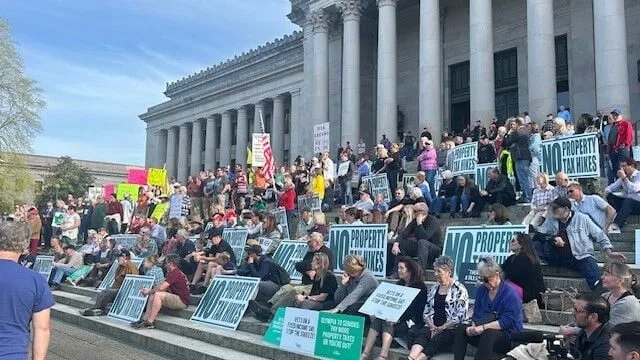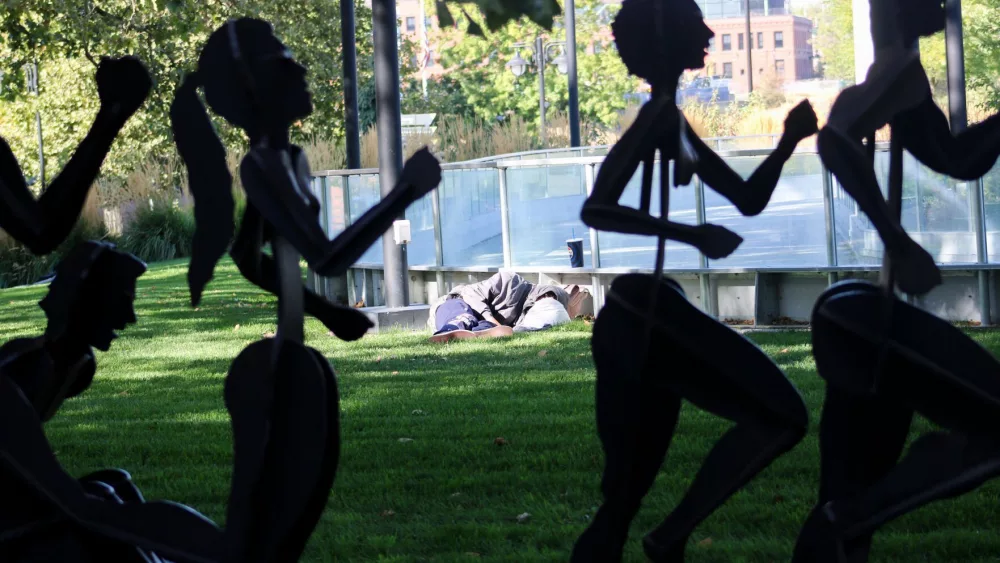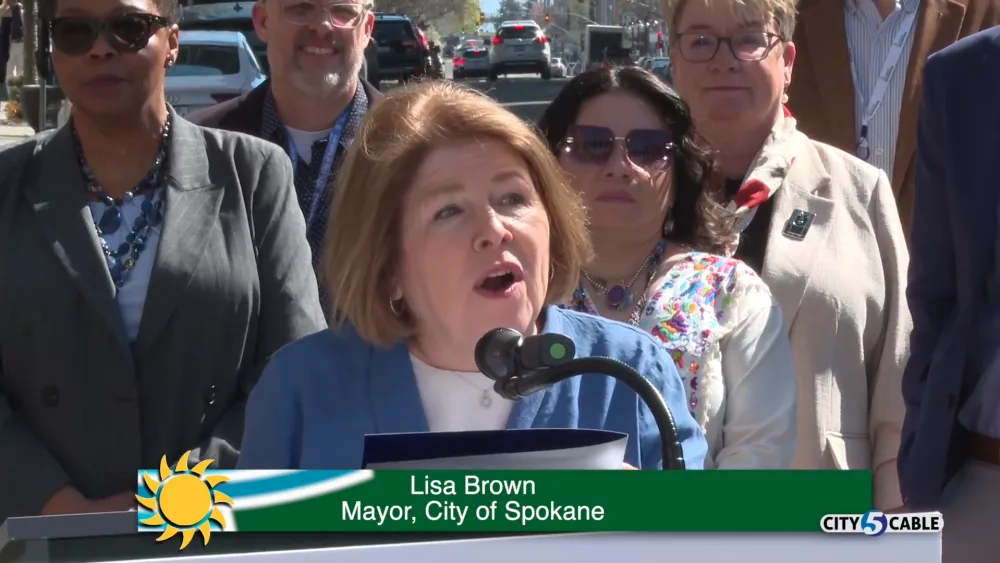(The Center Square) – Spokane City Council members agreed Monday to continue a weekly open forum process for citizen comments after receiving heated criticism of an earlier proposal to limit the forum to one meeting a month.
“We don’t want to silence you,” said Council President Betsy Wilkerson after hearing from nearly two dozen individuals who faulted the proposal floated during a Jan. 8 meeting.
That initial measure – part of an update of the council’s operating rules and procedures – was characterized as undemocratic, a violation of First Amendment rights, shameful, draconian, a raw deal, preposterous, and “a horrible thing for our community.”
“You should realize you lost a whole fight … it doesn’t look good for you,” Justice Forral, a regular weekly commenter, told the council.
Councilmember Jonathan Bingle said the council “definitely wants to hear from people … even when you hate my guts.”
It was Bingle’s sponsorship of an Oct. 9 resolution in support of the nation of Israel following a Hamas terrorist attack that sparked weekly appearances by a cadre of pro-Palestinian supporters who repeatedly condemned the resolution. They believed the one-meeting-a-month proposal was an attempt to silence them.
Monday night’s meeting, which stretched out for nearly five hours, was largely consumed by commentary on both the open forum issue and a new council resolution that condemns both antisemitism and islamophobia.
Newly elected Councilmember Paul Dillon said he believed his colleagues want to hear from all citizens “no matter their political affiliation … to minimize the gap between the council and the public.”
Dissent, said Dillon, “is patriotic … democracy can be ugly and beautiful.”
Kitty Klitzke, another newly elected member, added that the council also needs to respect its legislative responsibilities and “take care of business.”
Wilkerson agreed, saying the council was trying to balance time spent on open forum with “the need to conduct the legislative agenda, one of our prime responsibilities.”
The council has typically scheduled its citizen forum at the beginning of each Monday meeting with a limit of 15 speakers who signed up either in person or online that day. The change proposed earlier this month instead called for a single forum on the third Monday but with the number of speakers expanded to 40.
In a 4-2 vote Monday night, the council scrapped both measures and agreed to a new procedure that continues the weekly forums, increases the number of speakers from 15 to 20, maintains a 2-minute comment limit for each person, but moves the forum to the end of each meeting rather than the beginning.
Both Dillon and Councilmember Michael Cathcart dissented. Dillon wanted the forum to remain at the beginning, which he said most citizens favored. Wilkerson, in turn, said she had heard from individuals who wanted the session placed at the end.
During their tenures, Bingle and Zack Zappone have seen the sessions conducted both at the beginning and the end. Zappone said he favored the latter so people “who are here on business” could address the council first.
Irrespective of recent events, Zappone said the council had spent “a lot of time” dating back to last year in updating its policy manual, adding, “There are other great rules in this.”
The majority also supported amendments from Klitzke that now open the signup period to Fridays at 5 p.m. when the council’s upcoming Monday agenda is posted, and a process to randomly select forum speakers if more than 20 register. Council members also noted there was no limit placed on the number of individuals who can sign up to comment on specific legislative items.
Among the pro-Palestinian advocates, it has been common practice since October for them to stand silently in support of speakers with whom they agree, and to turn their backs on those they don’t. The new forum procedure calls for an end to that practice, along with not allowing the use of signs, visual presentations, comments or noises from the audience, or other behavior deemed disruptive or disrespectful.
Several of Monday’s speakers insisted that standing in support or protest should be allowed to continue. But Bingle and Zappone said that conduct was not permitted in other public venues, such as courtrooms, state legislatures, or Congress.
The council’s new resolution regarding the Israeli-Hamas conflict resulted from meetings arranged by Wilkerson, Zappone and Bingle with members of the Muslim and Jewish communities, human rights groups, and others.
“We’ve heard the community outcry, met with leaders of local activist groups, and understand the frustration and contention from those who support the Muslim community,” Wilkerson said in a statement issued by the city. “This resolution affirms the Jewish and Muslim communities and reinforces the Council’s stance that in Spokane we all belong.”
The measure was generally supported by over a dozen individuals who had repeatedly condemned Bingle’s initial resolution and continued to fault Israel for its destructive retaliation in the Gaza Strip. Scott Ward, a local teacher and persistent critic, said the resolution “still paints Hamas as the aggressor” and was devoid of “historical context” of Israel’s oppression of Palestinians.
But several persons who identified as Jewish felt the resolution was an unjustified appeasement of Hamas responsibility. “We’re being played by a propaganda machine,” said one woman, saying the group and its adherents advocate “the most repressive ideology on the planet.”
Another man said the resolution “has nothing to do with city business” and was being “inflated by ignorant narcissists.”
The measure passed in a 5-1 vote. Bingle dissented, saying he initially intended to support the resolution, but was angered by some of the evening’s testimony against Israel.
“I’m really proud of the Oct. 7 resolution,” he said.





